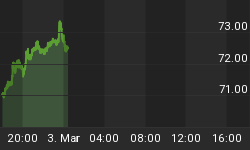The economy may be experiencing growth, but consumer sentiment isn’t feeling optimistic, largely because wages aren’t budging despite rising inflation.
In fact, the situation is dire enough for the most recent University of Michigan survey to call the shift in sentiment “extraordinary”.
In August, the university’s consumer sentiment index fell to 95.3, down from 97.9 the month before. It is the lowest level it’s been in 11 months. Economists polled by Bloomberg were expecting a preliminary August reading of 97.9.
Led by chief economist Richard Curtin, the university said the decline was primarily among households in the bottom third of the income distribution.

(Click to enlarge) “Buying conditions for large household durables sank to the lowers level in nearly four years,” according to the survey, with consumers expressing the “least favorable” views on pricing for durables in nearly a decade.
Also viewed “less favorably than any time since 1984 were vehicle prices, while home buying “conditions” were viewed less favorably that any time in the past decade and home buying prices were perceived as worse than any time since 2006.

(Click to enlarge)
This particular data, says the university, suggests that consumers are growing more sensitive to inflation than in the past, and have very “little tolerance for overshooting inflation targets”.
Related: Emerging Market Woes Spark Surge In Bitcoin Trading Volume
Although rising wages have managed to neutralize some of the consumer price resistance, the university seems perplexed by the significant drop in favorable price perceptions. The data is more perplexing because of the fact that even though the one-year anticipated inflation rate stayed the same at 2.9 percent, the consumer sentiment index perception declined significantly, representing a shift from recent trends in which perceptions of inflation did not impact the survey as much.
With inflation on the rise, the Labor Department’s core Consumer Price Index posted its biggest increase last month since September 2008.
According to the department’s latest report, the cost of living rose 2.9 percent over last 12 months ending July, and the inflation rate outstripped a 2.7-percent increase in wages over the same period.
The index for all items less food and energy rose 2.4 percent for the 12 months, which was the largest 12-month increase since the period ending September 2008. The food index increased 1.4 percent over the last 12 months, and the energy index rose 12.1 percent.
This decline puts real wages at their worst level since October 2012—a place where they can undermine consumers’ real purchasing power and contribute to the most recent decline in consumer sentiment.
Anyone who remembers the 1970s will understand the latest data clearly. High inflation was the tradeoff for low unemployment. It was also identified as the country’s biggest problem by most Americans, according to RealClearPolitics.
Then, the uncertainty was overwhelming, planning for the future was challenging at best, and President Carter though inflation was the bogeyman that led to his electoral defeat.
Right now, the situation isn’t in a critical phase, and the Fed’s interest rate hikes are tempering things, but with real wages failing to catch up to economic growth as anticipated and consumers taking the threat of inflation very seriously, it could come back to bite the economy.
By Tom Kool for Safehaven.com
More Top Reads From Safehaven.com

















